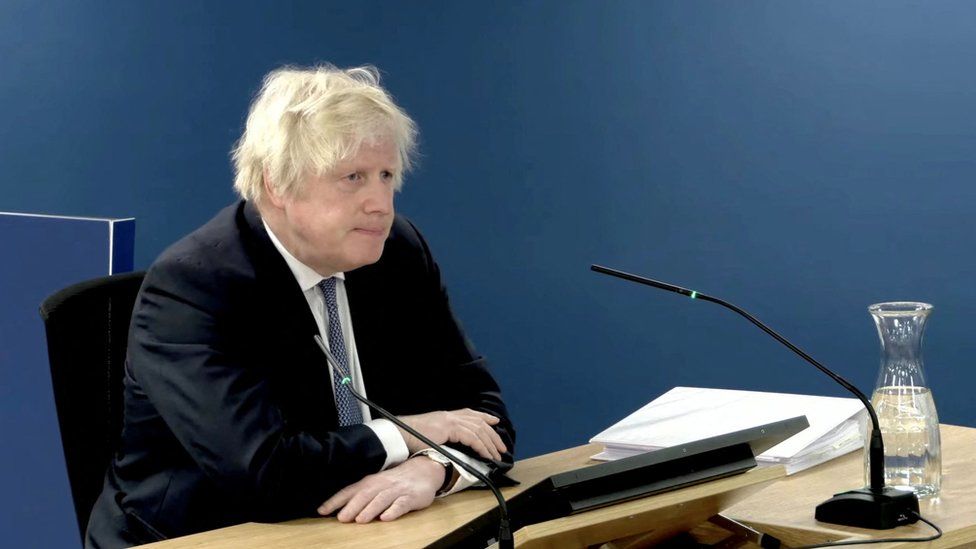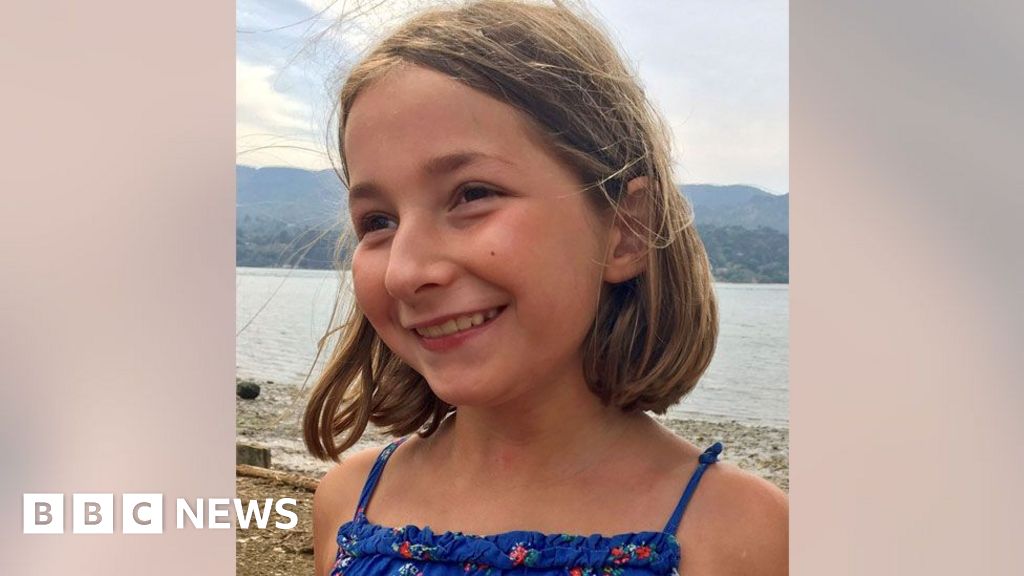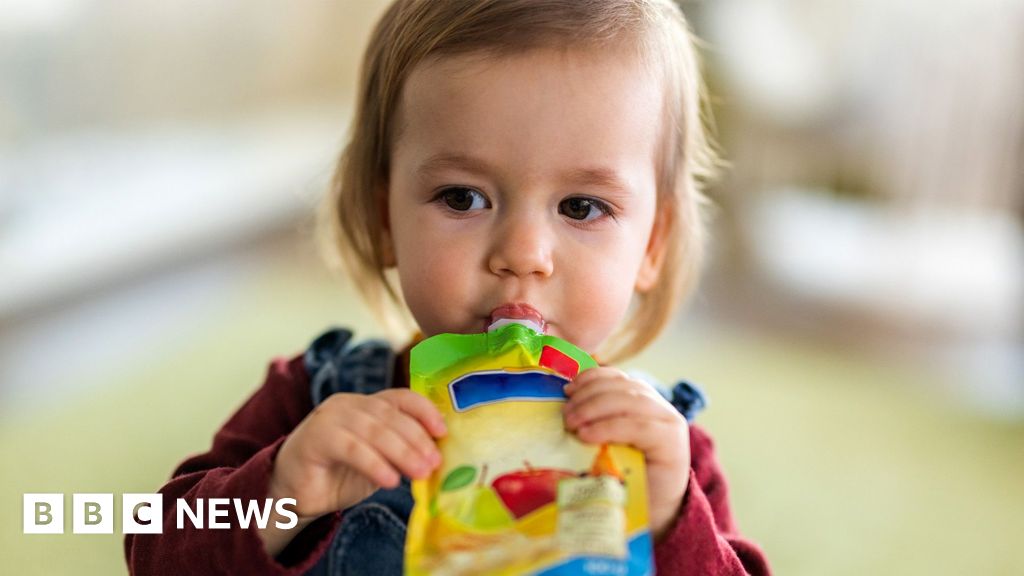ARTICLE AD BOX
 Image source, UK COVID-19 INQUIRY
Image source, UK COVID-19 INQUIRY
Former Prime Minister Boris Johnson appeared at the UK inquiry this week
By Lisa Summers
Scotland Health Correspondent
For weeks we have heard apologies, finger-pointing, and denials at the UK Covid Inquiry hearings in London. Meanwhile, in Edinburgh, a very different narrative of personal Covid stories is being replayed.
It will be at least another year before the Scottish inquiry hears from former First Minister Nicola Sturgeon and those who were in charge at the time but in London a parade of former ministers and the prime minister at the time, Boris Johnson, have already given evidence.
This has led to the UK inquiry hearing of WhatsApp exchanges depicting a "toxic" atmosphere in Downing Street and a "flip-flopping" PM who was veering around like a shopping trolley.
However, instead of questioning ministers as they are in London, the Scottish inquiry has seen witness after witness arrive in the small inquiry room on George Street to relive those terrible months during which their lives changed forever.
Sons, daughters, husbands, wives and parents - all telling heartbreaking stories of guilt and frustration as loved ones died alone in hospital or in care homes.
They have told of the virus spreading within families with fatal consequences, of grief-stricken relatives who could only attend a funeral from the car park and of desperate pleas for exemptions to the rules so they could hold a loved one's hand during their last moments.
Image source, PA Media
Image caption,Caroleanne Stewart told how paramedics arrived at her brother's house but refused to get out of the ambulance
The inquiry heard Caroleanne Stewart's story of paramedics arriving at her brother's house but refusing to get out of the ambulance.
It was told they drove off leaving Derek slumped over the driveway, his lips purple and struggling to breath.
A transport ambulance eventually took him to hospital where he deteriorated further. He died in May 2020 in ICU.
Gillian Grant's grandmother died in a Covid outbreak at an East Dunbartonshire care home.
Ms Grant said she only found out a "do not resuscitate" order had been placed on her grandmother without her consent, as she was preparing for the inquiry with lawyers.
Diane Montgomery's feeling about the care her mother received was that "more people are dying in care homes because they can't see their loved ones, than dying of Covid".
Sharon Mair, a former BBC employee, described the "hurt, anger, disregard" she felt on learning that her mother's funeral took place on the same day as a party in Downing Street.
Her poignant testimony was delivered while Boris Johnson sat in another witness box 400 miles away.
Image source, PA Media
Image caption,Scottish bereaved families in Edinburgh for the Scottish inquiry with solicitor Aamer Anwar
Here in Scotland the starting point for the chair, Lord Brailsford, is the impact of the pandemic and hearing from those for whom the consequences were the most devastating.
This stage is only about marking the horror that people faced in these moments, with witnesses spared a courtroom-style grilling.
It is a deliberately softer approach by Scotland's inquiry underlined by the fact that, unusually for public inquiries, witnesses in this phase are not giving evidence under oath.
This is in stark contrast to the evidence from the witnesses called to appear during this phase of the London hearings before Lady Hallett.
So-called Module 2 is aimed at discovering how well the heart of government was functioning at key moments.
But those testifying have sometimes resorted to desperately defending the positions they took or pointing the finger of blame at others.
Gillian Grant's grandmother died in a Covid outbreak at an East Dunbartonshire care home
This week former PM Boris Johnson was asked about 5,000 missing WhatsApp messages from the early days of the pandemic but, in contrast, no-one in the Scottish government has yet appeared to give evidence on why senior figures wiped messages or used an auto-delete function.
Nicola Sturgeon has previously told reporters there had been a Scottish government policy on social media messaging which advised their deletion after 30 days.
Humza Yousaf, the former heath secretary who is now first minister, said government business wasn't routinely done over WhatsApp and ministers were not told to delete messages to prevent potential embarrassment for the administration.
The inquiry in Scotland will continue to hear evidence from bereaved relatives until Tuesday when it will pause until February.
This is to allow the UK Inquiry to come north of the border to continue its investigations.
From 16 January, Lady Hallett will chair two weeks of public hearings at the Edinburgh International Conference Centre.
That is when the public will be able to hear from former First Minister Nicola Sturgeon, her colleagues and advisors about the key decisions they made.
When the Scottish inquiry returns, there will be further impact hearings in the area of health and social care.
There was a memorandum of understanding that the two inquiries would avoid duplication but because of its different structure, it will be at least 2025 before the Scottish inquiry takes its turn to question ministers and officials about their actions.
Image source, PA Media
Image caption,Protesters outside the UK Covid inquiry
Before that, much of next year will be focused on exploring the further impacts on young people in education, and on businesses.
More deeply raw emotion is likely to be expressed.
There are recurring questions such as: Why did the rules feel so arbitrary? Why did this system that was supposed to protect people fail for their loved ones? Why did it feel that the desperate needs of the most vulnerable were often less important than others?
These are the kind of questions that both the Scottish and UK inquiries aim to address, in their own ways.
They want to find out how decisions were made, how they were the implemented and what consequences they had.
The end goal of each inquiry is the same, to find out what lessons can be learned, but the route they are taking is strikingly different.

 1 year ago
35
1 year ago
35








 English (US) ·
English (US) ·